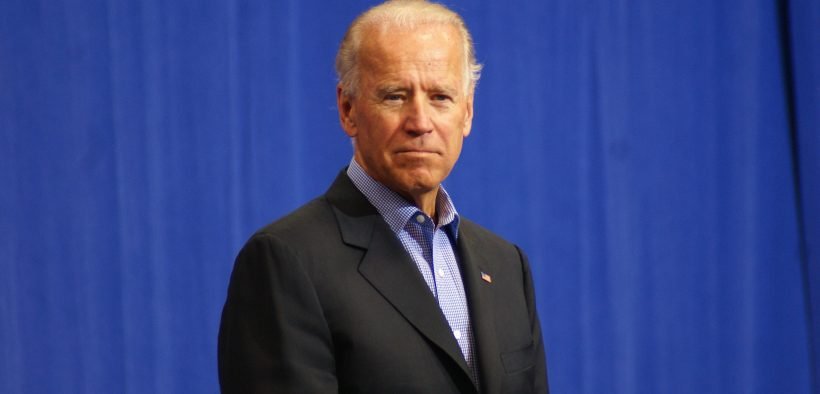Identity Politics, the Double-Edged Sword

Dear discerning members of the left,
What if I told you there is a 37-year-old person of color running for the Democratic Party presidential nomination in 2020 who believes in health care for all, free public tuition, a $15 minimum wage, supports the Green New Deal, stands by our veterans, promotes intersectionality, advocates for upholding the rights of vulnerable subsets of the population, champions large-scale economic, political, and social reform, and holds rallies attended by thousands of enthusiastic young people across the country? You’d sign up for that candidate in a heartbeat, wouldn’t you?
OK. Now assume the same things about this candidate—only change that instead this individual is a 77-year-old white guy. Are you suddenly less enthused?
In a nutshell, I’ve just described Bernie Sanders’s platform and one of the common criticisms I’ve observed anecdotally in my interactions with various Democratic and left-leaning activist groups. Never mind that Bernie believes in criminal justice reform, demanding the wealthy and large corporations pay their fair share in taxes, empowering Native American tribal nations, expanding Social Security, fair trade and workers’ rights, getting big money of out politics, gun safety, immigration reform, investing in rural America, LGBTQ equality, racial justice, reinvesting in public education and teachers, standing up for the people of Puerto Rico, and Wall Street reform. At the end of the day, he’s just another old white male.
I get it. The U.S. presidency has been a bastion of white male privilege for, well, ever, with Barack Obama being the notable exception to the rule, and after him going right back to Donald J. Trump, who is pretty much the poster boy for this concept. For what it’s worth, I also happen to think the women of the 2020 presidential race haven’t gotten a fair shake thus far next to other candidates, especially Elizabeth Warren. Hell, Kirsten Gillibrand is getting killed in the polls, and beyond what you may believe about the authenticity of her leftward shift since she became a member of the Senate, that her being among the first in her party to call on Al Franken to resign may be a major factor in her low polling numbers seems more than a little plausible. So much for the #MeToo era. Female Democratic Party supporters, try to maintain some semblance of decorum as you throw one of your own under the bus and back over her just to run her over again. Sheesh.
But, yes, it strikes me as counterproductive that so many voters desperate to throw Trump out of office are evidently more concerned about the identity of the person running and whether he or she “can stand up to Trump”—a judgment predicated on hypotheticals, preconceived notions of leadership, and other subjective factors which may lack real credence—than the actual platform on which that candidate is running and what it might mean for the country. Admittedly, it may be a bit early for policy specifics roughly a year-and-a-half from November 2020, though going back to Bernie, he’s got a whole page of positions on key issues on his campaign website, so maybe not. An arguably more productive exercise would be to take these various candidates’ stances, divorce them from the individuals delivering them, and assess them in a blind “taste test,” so to speak. In theory, it shouldn’t matter who’s making the case as long as he or she is making the right case.
Such is why I bristle at the idea Bernie is too old or white or socialist or “not a real Democrat”—whatever that means. If Cory Booker or Kamala Harris or Pete Buttigieg were pitching the same platform, would we be having the same sort of discussion, looking for other ways to discredit them along demographic lines? Or would we be instead extolling their virtues as a black man, a woman of color, or a highly-educated gay man and veteran?
Though I believe there are other reasons why he’s not an ideal candidate for the Dems—and more than just that some would identify him as the creepy handsy uncle of the Democratic field—I fear 76-year-old Joe Biden, now officially running for president, may suffer from the same treatment. So he’s old and white. Does this mean he can’t do the job? After all, should he prove incapable at a point after getting elected, there’s a whole line of succession after him. Ladies and gents, there are safeguards in place.
This is the double-edged sword of identity politics. On one hand, it allows you to embrace a diverse field of candidates as it relates to ethnicity, gender, geography, religion, sexual orientation, and other identifying characteristics. On the other hand, it can cause you to miss the forest for the trees, getting you caught up in notions of “electability” and whether someone looks or sounds presidential rather than whether they possess the ideals and the vision for the job. This is before we even get to Pres. Trump, who sure doesn’t act or sound presidential but enough people voted for him so he got the position anyhow. If any member of the Democratic Party field isn’t presidential next to him, they’re actively trying not to be.
Of course, this may be much ado about nothing. Biden and Sanders are among the front runners in current polls, so being old white dudes sure doesn’t seem to have hurt them so far. Still, opinions change and polls have been known to be wrong, and once we get deeper into primary season, what amount to trifles now may loom larger if we’re still tearing down candidates irrespective of what they have to offer voters in terms of stated policy specifics or lack thereof. Unless we’re not serious about beating Trump no matter what. We are serious about that, aren’t we?
To paraphrase poet Robert Burns, the best-laid plans of mice and men often go awry. Identity politics, for their appeal to diversity, can be elaborated to absurd extremes that work against voters’ best interests. On a similar note, the current climate of concern about Russian hacking and influencing efforts with respect to our elections speaks to a very real concern for Americans across the political spectrum.
When not carrying water for Pres. Donald Trump re the state of immigration policy in this country, recently deposed Department of Homeland Security chief Kirstjen Nielsen evidently was concerned enough about Russian meddling to want to bring the issue up with the president, only to be warned against such a move by Mick Mulvaney as Chief of Staff. This is another one of those occurrences that is galling because it goes against what many of us believe is morally correct but, based on what we know and suspect of Trump as his sphere of influence intersects with Russian interests, it is not the least bit surprising.
This preoccupation with meddling, too, however, can be taken a bit too far. Amid the hypersensitivity about Russia compounded by Trump’s upset win in the 2016 election and the findings of the Mueller report coming out in dribs and drabs, though we are more than a year away from the general election, criticism of one Democratic Party candidate on the part of another’s supporters runs those detractors the risk of accusations of engaging in activity that “will help Trump get re-elected” or, worse yet, betrays their identity as Russian agents or bots.
Going back to criticisms of Joe Biden’s candidacy, to refer to him simply as “Creepy” Uncle Joe absent of additional context or insight only seems to invite the defensive, reflexive anti-Russia “J’accuse!” that is characteristic of Democratic loyalists in this zeitgeist. More constructive criticisms, meanwhile, would seem to be found in revisiting Biden’s past actions and legislative hallmarks. Roxanne Jones, a founding editor of ESPN Magazine, speaks to marks on Biden’s CV in musing that he is “losing his glow.”
Adding to #MeToo-era deliberations on the appropriateness of Biden’s interactions with certain women, Jones highlights other events which do not paint the former U.S. senator in the best light. As has been observed by numerous critics, for one, Biden played a critical role in questioning Anita Hill during Clarence Thomas’s Supreme Court confirmation hearing, doing so in a way that “devastated and shamed” a “credible, intelligent woman” and set women back who would’ve otherwise come forward with sexual harassment claims in hostile work environments. To make matters worse, he hasn’t apologized directly to Ms. Hill about his involvement as chair of the Senate committee presiding over the hearing.
There’s also the problem of Biden’s legacy as a principal author of drug crime laws which have helped fuel America’s ongoing mass incarceration problem as they have been elaborated and modified over the years. These laws disproportionately target people of color, with mandatory minimum sentencing and sentencing disparities giving rise to a prison population explosion that feeds an ever-hungry for-profit prison industry. And Jones doesn’t even address the issue raised by Elizabeth Warren and others that Biden has a rather cozy relationship with the health insurance and banking industries as a former legislator from Delaware. If a kickoff fundraiser bankrolled by telecom and health insurance corporate execs is any indication, Biden’s identity as a working-class hero and champion of the “every-man” is more problematic than perhaps many realize.
These are legitimate criticisms of Biden as a seeker of the highest political office in the nation. But are Biden’s steadfast backers and other Democratic Party supporters desperate to unseat Trump willing to listen? Giving little thought to qualms about Biden’s prior questionable actions, those apologists with whom I’ve interacted online have defended his character, his legacy of public service, and his willingness to stand up to Trump, in doing so casting aspersions on my personhood separate from being a Russian operative and lamenting how some people only want to a tear a “good man” down.
To the extent that some naysayers only wish to denigrate candidates as part of some never-ending purity test without offering an alternative or advancing a point of meaningful debate, I agree with such an assessment. Not everyone is a bot or stooge for Vladimir Putin, however. That some people would seek to squelch discussion along these lines says something profound about just how toxic political discourse can become when facts give way to feelings, distrust becomes an all-too-valuable currency, and arguments are “won” or “lost” based on who yells the loudest or who has the most followers on social media.
When we get this far, no amount of rational deliberation will make a difference, and in fact, those armed with logic can fall into the trap of wasting their time and effort on a lost cause. As the Republican Party under Trump has demonstrated time and again, such a pitfall may well be intentional—though the line between cold calculation and overall incompetence may indeed be blurry.
Focusing on the identity of the politician making appeals on policy matters or that of his or her objectors may provide us with some measure of satisfaction. But personality and individual attributes, charming or otherwise, are not substitutes for a well-developed party platform. If the goal is truly to beat Donald Trump next November, maybe we should worry less about who is leading the charge and pay more attention to appealing to what voters want the most.











